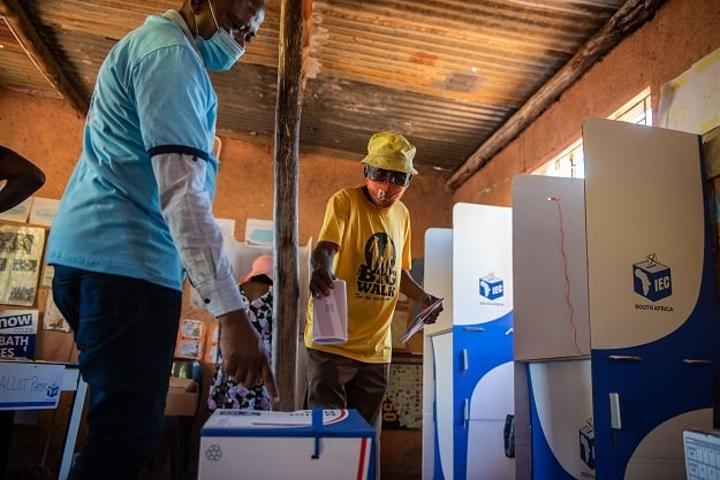Africa-Press – South-Africa. The National Assembly passed the Electoral Amendment Bill on Thursday, leaving just five days for President Cyril Ramaphosa to sign the controversial legislation into law to stay in line with a Constitutional Court order.
The ANC, EFF, GOOD and Al Jam-ah supported the bill’s adoption, leading to 218 votes in favour, while the DA, IFP, FF Plus, and ACDP mustered 81 votes against the bill. There were no abstentions, but the UDM, ATM, NFP, AIC, COPE, and the PAC were not present in the House for the vote on this key legislation.
The bill is necessitated by an 11 June 2020 Constitutional Court ruling that declared the Electoral Act unconstitutional “to the extent that it requires that adult citizens may be elected to the National Assembly and provincial legislatures only through their membership of political parties”.
The apex court then suspended the declaration of unconstitutionality for “24 months to afford Parliament an opportunity to remedy the defect giving rise to the unconstitutionality”.
Parliament initially deferred working on the amendment to the Department of Home Affairs, and Parliament had to approach the Constitutional Court to extend the initial deadline of 10 June 2022 by six months, which the court granted.
In October, the National Assembly adopted the bill amid much opposition from civil society, who wanted a hybrid constituency-based electoral system, instead of the bill’s proportional system, favoured by the ANC.
The National Council of Provinces (NCOP) made amendments to the bill. Chief among the NCOP’s changes is a clause providing for the establishment of a panel of experts to consider more expansive electoral reform than what the current bill provides for.
The other change involves changing the threshold for supporter signatures, bringing what is needed by a party to register in line with what an independent candidate needs to compete in an election.
This necessitated the National Assembly to refer the bill to another round of public participation after the bill was referred to it. Parliament yet again had to apply to the Constitutional Court for a deadline extension. It extended the deadline to 28 February.
At Thursday’s sitting of the National Assembly, DA MP Adrian Roos said the bill had “glaring flaws”.
“The bill turned into a hot mess with the purpose to get the ANC more seats than they deserve.”
He added the ANC would get the “wasted votes” of people who did not vote for them.
EFF MP Thapelo Mogale said: “Collectives have better solutions than individuals and organisations must still be at the centre of social transformation and economic emancipation. But, since the courts have pronounced that independent candidates must be allowed to compete, then so be it.
“The bill could have set an even higher threshold and put more stringent measures to make it not easy for individuals to crowd the ballot paper.”
IFP MP Liezl van der Merwe, whose statement was read by IFP MP Magdalena Hlengwa, said when the bill was before the NCOP, her party pleaded for the inclusion of a small constituency component.
“However, this was ignored and what we have now is a flawed and unworkable bill.”
ANC MP Moleboheng Modise added her party was guided by its constitution and the Freedom Charter.
“Amongst other things, the Freedom Charter provides that the people shall govern and that no government can claim legitimacy unless it is based on the will of the people.”
She said the Portfolio Committee on Home Affairs listened to the public comments on the bill.
“The bill, therefore, reflects what the people would have said in the public hearings, as well as our role as legislators to develop a bill that would best cater for the interests of our people.”
Modise added it was important to note the Constitutional Court did not prescribe which electoral system Parliament should consider in drafting the amendment.
For More News And Analysis About South-Africa Follow Africa-Press






